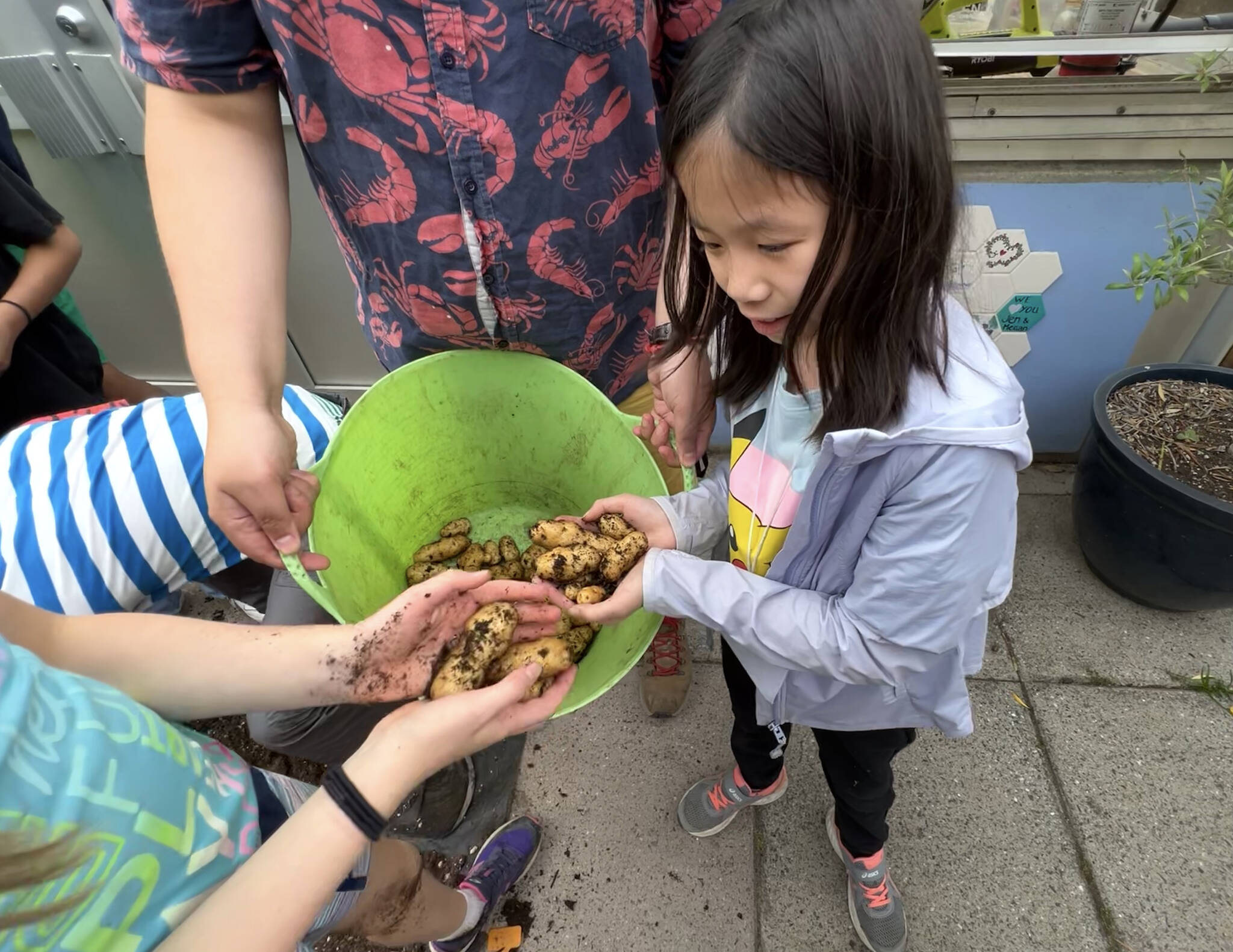In 2002, IslandWood set out to offer outdoor education to inspire lifelong environmental and community stewardship programs for children throughout Puget Sound.
Two decades later, IslandWood is recognized as a national leader in environmental education with a graduate program partnership through the University of Washington. It offers professional development courses for teachers, supported by Washington’s ClimeTime initiative, and this year advocated for passage of a state law that establishes a statewide outdoor school program.
“We inspire the next generation of environmental stewards,” said IslandWood CEO Megan Karch, legislative co-chair of the Washington Outdoor School Consortium that will usher in outdoor learning for students statewide. “There has never been a more important time for quality environmental education. If it was ever considered a nice to have, now we know, for the future health of our planet and our communities, it is a must-have.”
IslandWood’s programs are holistic, and nature is included in all parts of the curriculum, “With a fourth-, fifth- and sixth- grader, what we’re looking for is a spark” to inspire future environmentalists. “You don’t know what that spark is going to lead to, but you know it’s there.”
Karch believes IslandWood’s role is to partner with teachers, to help them and provide the tools they need in the classroom for this holistic experience.
Last summer, a group of science district leads and science teachers spent three days on campus to look at the national science curriculum, “Amplify,” and localize it for teachers, who then apply it in their classrooms.
“We’ll work with them virtually and create appendices for them to use, and they can make it really local and real for the kids,” Karch said.
She wants students to have a great experience at IslandWood, but hopes they see nature where they live. “Nature is in your backyard, nature is in the city, nature is everywhere.”
She shared what Suquamish tribal chairman Leonard Forsman once told her. “It’s a synergy. The planet cares for us, so therefore we care for the planet.”
IslandWood’s main campus is nestled within 250 forested acres on Bainbridge Island, which was acquired in 1997 by founders Debbi and Paul Brainerd. Strongly influenced by time spent outdoors at her family’s Whidbey Island one-room cabin, Debbie wanted other children to have those same kind of nature experiences.
Brainerd wanted IslandWood to serve the public at the lowest cost so everyone could experience it. With funding from supporters, foundations and government grants, IslandWood ensures that children, educators, and community members have access through free programs or scholarships.
“I thought we could build a school in the woods where kids could come and learn about the natural and cultural history of Puget Sound,” she said.
Brainerd spent six months researching the feasibility of her idea and learned that mostly children from wealthier schools had access to these kinds of outdoor learning experiences.
At that time, environmental education was a state mandate in Washington, but funding had never been allocated to support the mandate. It was then that the Brainerd’s created the nonprofit Islandwood.
In its 20th year, Islandwood has grown from serving 700 students to reaching more than 30,000 children, educators and community members a year. With programs on Bainbridge Island, at Seattle streams and watersheds, at the Brightwater Education Center in Woodinville, the South Plant in Renton, in Tacoma schoolyards and virtual programs, the organization has become one of the primary organizations in the region for environmental learning.
“In the beginning, I never imagined IslandWood would offer so much, or become so integrated into the fabric of our region,” Brainerd said. “Twenty years later, the reach and impact are extraordinary. To hear the stories of children who remember their experience with IslandWood years and years later—of educators who now teach in new ways and with new tools – or of community members who continue to learn and bring their families to experience IslandWood programs. My vision has been more than fulfilled—it’s unbelievable how it continues to find ways to serve more children and teachers every year.”



